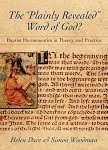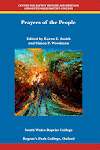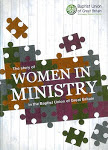Bloomsbury Central Baptist Church
Christmas Day 2014
Reading: Luke 2:1-20
Sermon*
Our reading from Luke’s gospel goes to some pains
to set the birth of the Messiah
in the context of secular history.
In fact, right through Luke’s gospel,
he gives us lots of little historical clues,
and has sometimes been described as a bit of an amateur historian.
However, the problem we have with his version of the birth of Jesus
is that he doesn’t get his history entirely right!
As far as we know, there was a census in Judea (it just wasn’t empire-wide)
and it took place, as Luke suggests, under Quirinius
but the problem with it is that it happened in the year A.D 6!
However, this is only part of our historical conundrum:
The other issue is that Herod the Great,
wwho, according to Matthew’s gospel
was alive at the time of Jesus’ birth,
died in 4 B.C., some nine years before the census…
However, interesting though such historical background might be,
Luke’s purpose in telling his story the way he does
is to contrast the Roman Emperor Augustus,
a man who held worldwide political power,
with a seemingly insignificant birth in Bethlehem.
Luke’s story is told in such a way as to reflect the fact
that Jesus was a Galilean from Nazareth, of all places,
which is a bit like saying he’s a Scouser from Newcastle,
and also to show that the birth of this working class northerner
fulfilled the prophecy of Micah 5.2
that the ruler of all Israel was to come forth from Bethlehem.
So Luke tells his story to show that it was Augustus who unwittingly enabled Jesus
to be born in the right place,
by calling the census,
thus demonstrating that the final power belongs to God,
and not to any human forces at work in the world.
The circumstances of the birth of Jesus
point to the life of one who will have nowhere to lay his head (Luke 9.58);
born as he is in a borrowed stable,
but they also indicate that the child will be a Saviour;
in fact he will be the Messiah, the Lord, far outshining the emperor.
For the time being, however, the birth is announced only to shepherds.
They hear the heavenly host singing an angelic song,
which echoes the cry of the seraphim in Isaiah 6.3.
Heaven and earth are now indeed full of God’s glory.
Nativity plays and popular culture often cast angels as female,
when as we all know, in the Bible,
angels are encountered as male messengers from God.
However, there is another possible gender confusion in the nativity story,
and this time it's one which goes the other way.
In traditional Bedouin societies, women often looked after the flocks,
and it is certainly possible that the shepherds,
who rushed to the scene of a new born baby, were women.
Of course, at the end of Jesus' life,
those who remain with him to the very end are the women,
and the first witness to the resurrected Jesus is also a woman.
Add all this to the fact that his mother is a teenager and unmarried,
and take it in a context where women were more commonly
regarded as property than persons,
and a peculiarly liberating picture of Jesus emerges...
This is a messiah for all people, not just for powerful men.
He is a messiah for those whom society devalues,
a messiah for shepherds and refugees,
for single parents and frightened fathers,
every bit as much as he is a messiah for the wise, the educated, and the prosperous.
The challenge for those of us who follow him
is to never lose sight of the one in whom, as St Paul said,
there is neither male and female, neither slave nor free,
neither foreigner nor native.
And as we enter a season of election fever,
and are we are challenged to make our choices
about who will be in, and who will be out,
the message of the Christ child
is that in his kingdom all are included, all are welcome.
And so the shepherds are vociferous in their excitement and amazement,
they sing and babble and shout the good news
of a messiah for all people.
But Mary needs to contemplate quietly, keeping her thoughts to herself.
‘Mary treasured all these words.’ Says Luke.
After Jesus’ birth there is no song of magnificat
to mirror the song she sang when first told
that she was going to have a child as a gift from God.
It seems that Mary found no words
for such an overwhelming experience:
A young woman, pregnant out of marriage,
far from home, giving birth in poverty,
facing a long journey,
and shortly to become a refugee
on the run from a murderous tyrant.
Is it any wonder that her words ran out,
and her song fell silent.
Christmas is a complicated time for us all,
just as the birth of Christ was complicated for Mary.
For some of us, Christmas is a time of joy,
as our Lord comes to us in the midst of our happiness and festivities.
But for others, our experience can be closer to that of Mary,
as we struggle to find the words to combine reality with hope.
Sometimes, the coming of Christ is not to a world made easy,
but to the difficulties, arguments, griefs and conflicts
that make up the reality of our lives.
But whether we are sad or happy this Christmas,
whether we mourn or rejoice
nonetheless it is to us that the Christ child comes,
as hope arises in the midst of despair,
and good news breaks into our reality,
as God takes human form and comes to the world once again.
*the study notes from Rootsontheweb.com were used in preparing this sermon
x












